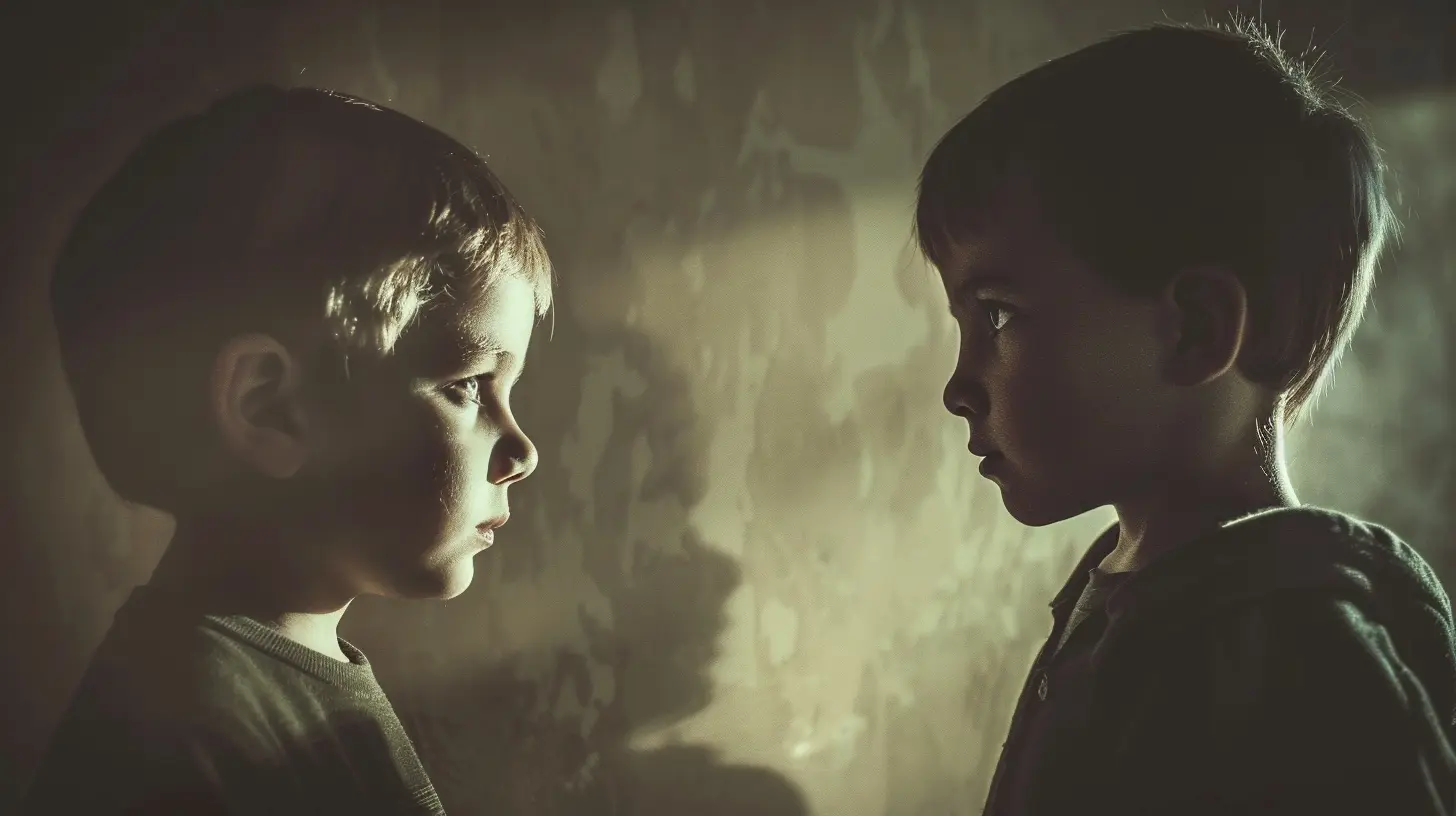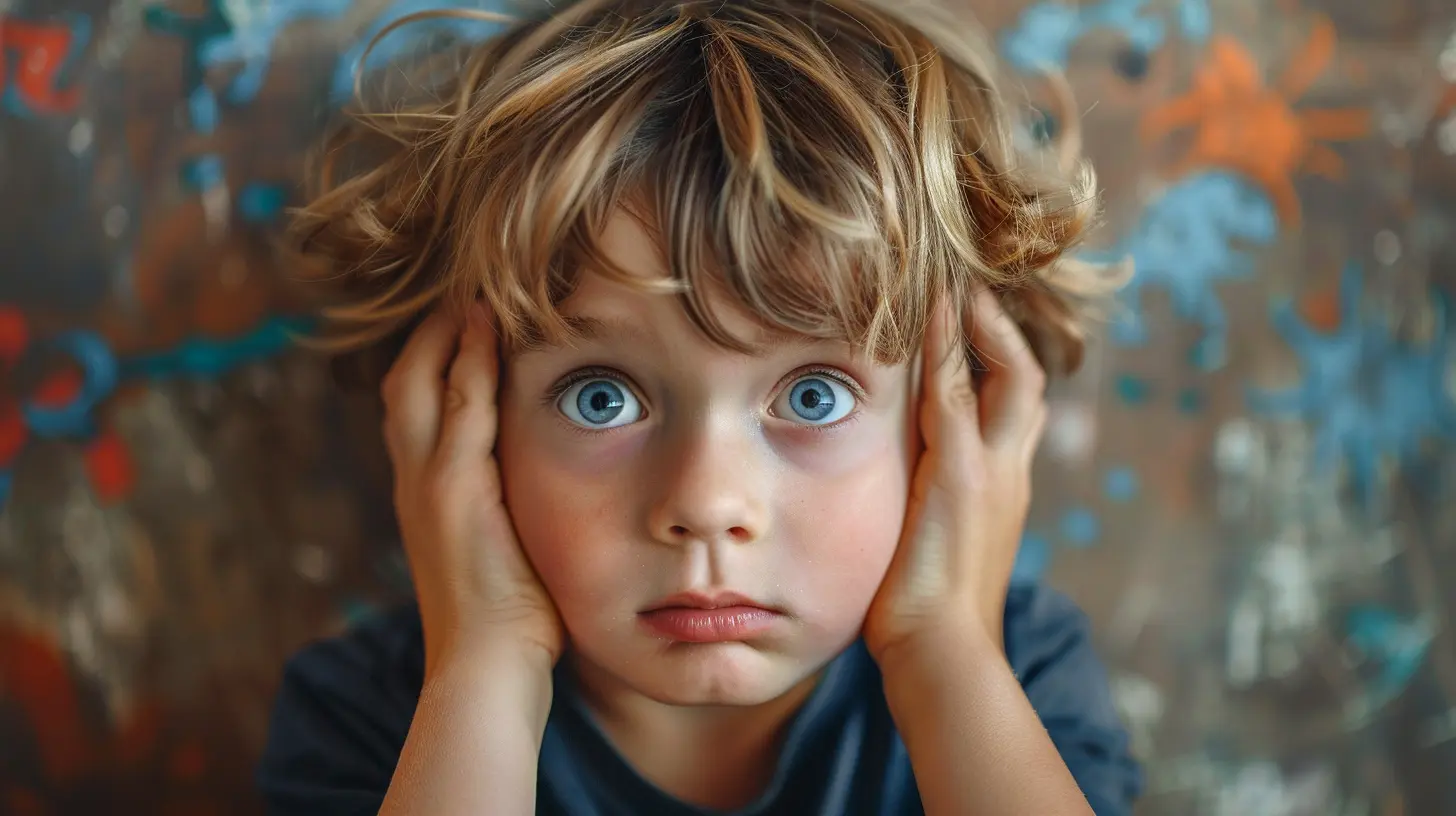How Parenting Styles Influence a Child's Social Skills
8 June 2025
So, picture this: You're watching a group of kids at a birthday party. One’s confidently leading a game of tag like a tiny CEO. Another is clinging to their parent’s leg like a sloth on espresso. Yet another is off in the corner talking to a potted plant with alarming sincerity.
What’s going on here?
No, it’s not random chaos (well, maybe a little). A lot of it has to do with how those kiddos are parented. That’s right—your approach to bedtime routines, screen time battles, and whether “because I said so” is your favorite phrase actually shapes how your kid interacts with the world.
Let’s take a deep dive into how parenting styles influence a child’s social skills. Grab a coffee, put your “world’s okayest parent” mug proudly beside you, and let’s unpack this.
The Big Four: Parenting Styles 101
Before we dive into the fun stuff (like what kind of playground boss your kid might become), let’s briefly meet the four parenting styles. Think of them like characters in a sitcom:1. Authoritative – The Cool, Balanced Parent
- High expectations + high support.- Basically, they say, “You better clean your room… but I love you and here’s how I’ll help.”
2. Authoritarian – The Drill Sergeant
- High expectations + low support.- Rules are rules. No ifs, ands, or TikToks.
3. Permissive – The Laid-Back Buddy
- Low expectations + high support.- “Sure, you can have ice cream for breakfast, sweetie. Want sprinkles too?”
4. Neglectful – The Ghost Parent
- Low expectations + low support.- These parents are physically present but emotionally out to lunch.
Each of these styles sends kids into the wild world of school, sports, and sleepovers with different toolkits. Some are packed with confidence and empathy; others might just come with a fidget spinner and a vague sense of confusion.
Authoritative Parenting: The Social Skill MVP
Authoritative parents are like the Goldilocks of parenting—not too hard, not too soft, just right. They set clear rules but also listen, explain, and encourage independence.🎯 Social Skill Superpowers:
- Confidence without cockiness- Empathy with boundaries
- Great at both leading and listening
Think of these kids as the ones who know how to make friends at a new school in under 10 minutes and remember to say “please” to the lunch lady. It’s like social magic.
📚 Why It Works:
Authoritative parenting fosters emotional intelligence. These kids are used to being heard, so they learn how to hear others. They're not afraid to speak up because their opinions have always mattered at home.Honestly, if social skills were a video game, authoritative kids would be on level 99 with a cheat code for emotional regulation.
Authoritarian Parenting: The Rule-Follower’s Dilemma
Ah, the authoritarian parent. Picture a clipboard in one hand, a chore chart in the other. They mean well—structure is important! But warmth? Not so much.🎯 Social Skill Struggles:
- May come off as shy, anxious, or socially stiff- Often struggle with making independent decisions
- Tend to follow more than lead
These kids know how to behave in public. Oh, they’ll say “thank you” and “excuse me,” no problem. But ask them to make small talk or start a group project? Cue the internal panic.
📚 Why It Happens:
When parents prioritize obedience over communication, kids might learn to suppress their feelings rather than express them. That doesn’t exactly scream “life of the party,” does it?It’s like training for a social marathon by only doing push-ups. Sure, they’ve got discipline—but no stamina for the unpredictable dance of real human interaction.
Permissive Parenting: The Party, With No Clean-Up Plan
Permissive parents are all about love... and maybe just a tad allergic to discipline. They’re the ones who negotiate bedtime like it’s a hostage situation. (“Five more minutes? Okay, ten. But that’s final. Unless you want twenty…”)🎯 Social Skill Snapshot:
- Super friendly and outgoing- Struggle with boundaries (what even is a boundary?)
- May seem overbearing or impulsive with peers
Permissive kids are the life of the party but might also be the ones who bring glitter, spill the punch, and try to pet a squirrel. They're friendly—but sometimes in a "No, Timmy, you can’t sit on the mailman’s lap" kind of way.
📚 What’s Going On?
These kiddos often lack limits, so they charge into social scenes without enough self-regulation. They’re used to getting their way, which can lead to frustration when their BFF doesn’t agree that every game should involve dinosaurs and cookies.Imagine giving someone a car with no brakes. Fun? Sure. Safe? Not so much.
Neglectful Parenting: The Wild Card
Neglectful parents don’t, well, parent. These kids often raise themselves emotionally—and it shows.🎯 Social Skill Challenges:
- Difficulty trusting others- Struggle with forming close relationships
- Often either withdrawn or overly aggressive
Kids need attention like plants need sunlight. Without it, they can’t grow properly. They might act out just to get noticed, or quietly slip into the background like the kid who’s always “just fine” (but isn't).
📚 Why It Matters:
Without role models, kids don’t learn the “how-to” of social life. They might mimic what they see on TV or from peers—often with inconsistent results. It’s like trying to bake a cake without a recipe and using salt instead of sugar.Spoiler: it’s not delicious.
So… Can You Switch Styles?
Yep! Parenting isn’t like a Hogwarts house—you’re not locked in forever. Maybe you started off authoritarian (because yelling “Because I said so!” is strangely satisfying), but now you’re trying to be more understanding.Great! You can shift your approach. Think of parenting styles as a GPS—you might take a few wrong turns, but you can always recalculate.
And don’t beat yourself up! No one’s the “perfect” parent (except maybe that one mom who bakes gluten-free cupcakes and has a chore wheel with sparkles, but let’s be real… she's probably hiding in the closet with a bottle of wine too).
What Really Builds Social Skills?
Let’s zoom out. Here are a few universal ingredients that help your kid become a social ninja, no matter your parenting style:- 🧠 Emotional validation: Let them feel what they feel. It’s not drama—it’s development.
- 🗣️ Open communication: Talk like they’re a person (because… they are).
- 🕹️ Modeling behavior: Remember, your kid sees how you treat the waiter—and they’re taking notes.
- 🧩 Opportunities to socialize: From playdates to awkward family functions, the more they interact, the more they learn.
And hey, if your child has ever delivered a heartfelt apology to the family goldfish, you’re doing just fine.
The Big Takeaway: You’re The Social Architect
Your parenting style is like the blueprint for your child’s social house. Authoritative builds a cozy bungalow with open windows. Authoritarian might make a fortress—safe but kind of lonely. Permissive builds a funhouse with no walls, and neglectful… well, someone forgot to build.The good news? Houses can be renovated.
Be intentional. Reflect. Adjust. And know that even if your kid is still calling people “poopy-head” in kindergarten, with love, structure, and the occasional “outside voice” reminder—they’ll get there.
Final Thought From One Human To Another
Parenting is messy, magical, and sometimes manic. But if you’re even reading this far down an article about parenting styles (bless your attention span), you’re already way ahead of the game.So keep showing up. Keep guiding. And when in doubt, remember: Empathy > everything.
Also, snacks help.
all images in this post were generated using AI tools
Category:
Child DevelopmentAuthor:

Paulina Sanders
Discussion
rate this article
3 comments
Fenn McFee
Thank you for this insightful article! It's fascinating to see how different parenting styles shape a child's social skills. Understanding these influences can help us foster positive interactions and build stronger connections. Looking forward to more discussions on this important topic!
June 23, 2025 at 4:05 AM

Paulina Sanders
Thank you for your thoughtful comment! I'm glad you found the article insightful. I look forward to more discussions on this crucial topic!
Elijah Klein
This article provides valuable insights into how various parenting styles shape a child's social skills. It effectively highlights the importance of nurturing environments while acknowledging that individual temperament and external factors also play significant roles. A balanced perspective encourages parents to adapt their approaches for optimal social development in children.
June 16, 2025 at 4:16 PM

Paulina Sanders
Thank you for your insightful comment! I'm glad you found the article valuable in highlighting the interplay between parenting styles, temperament, and external factors in shaping social skills.
Thane Hernandez
This article effectively highlights how different parenting styles shape children's social skills, emphasizing the importance of nurturing and support.
June 14, 2025 at 3:58 AM

Paulina Sanders
Thank you for your feedback! I'm glad you found the article insightful in illustrating the impact of parenting styles on children's social development.



